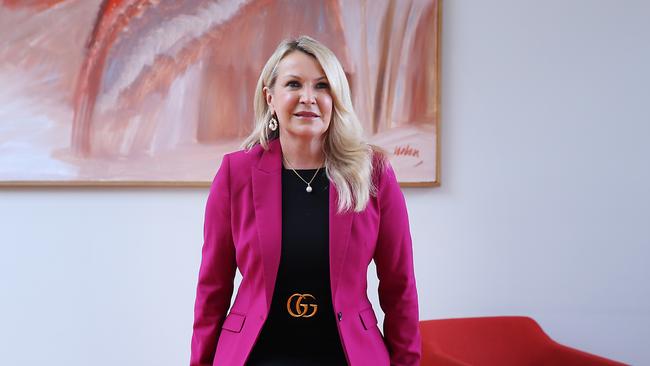Miners can absorb virus shock: Fortescue CEO Elizabeth Gaines
Elizabeth Gaines says there has been no cutback in iron ore production in the Pilbara in the wake of the coronavirus crisis.

In mid-January, Fortescue Metals Group chief executive, Elizabeth Gaines, was in Shanghai opening the company’s new office in China.
China’s steel production had hit a new record of almost a billion tonnes (996 million tonnes) in 2019, up by 8.3 per cent from the previous year thanks to strong growth in the property sector and government spending on infrastructure.
Gaines had met with representatives from the powerful China Iron and Street Association and its customers who indicated that they were expecting it to go up by another 2-4 per cent this year.
For Fortescue, which sells most of its iron ore to China, producing the ore “at full pelt” from its operations in the Pilbara, and supplies from rival Brazilian iron ore miner Vale still down, it was another strong outlook.
Fast-forward two months and it is a very different atmosphere in China. Given the coronavirus crisis, Gaines is not travelling to China later this month for the annual Boao forum on Hainan Island which Fortescue has backed for the past 12 years. It has been cancelled along with all other conferences in China.
Fortescue’s office in Shanghai, which was closed during the coronavirus shutdown, has now reopened, but some of its staff who went home in late January for the annual Chinese New Year to visit family in nearby Hubei province are still in lockdown.
“We all acknowledge that 2020 isn’t going the way that most of us thought,” Gaines told The Australian in an interview in Sydney on Tuesday.
Unlike Qantas chief executive Alan Joyce, and other chief executives of companies hard hit by the coronavirus, Fortescue’s operations have so far remained relatively unchanged, despite its strong ties to China.
Despite the crisis, Gaines said that steel production in China, the key factor underwriting Fortescue’s fortunes, was still continuing strongly. “Slowly we are seeing signs that things (in China) are returning to some form of prior activity,” she said.
As Gaines said, it was all hands to the pump for iron ore producers in Australia last year in the wake of the fall-off in supplies from Vale, following the collapse of a dam in January 2019 which killed around 270 people, and the continued strong demand from the steel industry in China.
If any anything, local iron ore production in China, which had stepped up to meet the extra demand last year, was down a little this year as mines had not fully returned to work, improving demand for imports.
That said, the crucial period is still ahead — with questions about how fast the construction industry in China gets back to work.
While trips from Australia to China by Fortescue executives are off the cards, the company is working hard to maintain “business as usual” approach as the coronavirus sweeps the world.
For its part Fortescue has contingency plans in place at its headquarters in Perth and strict controls at its remote mine sites in the Pilbara.
Indeed, Fortescue’s plans to handle an outbreak of an infectious disease in its Australian operations were tested late last year as a result of a case of measles brought to its Christmas Creek mine, some 1150km northeast of Perth by a fly-in-fly-out worker.
The worker was immediately quarantined and flown out of the site by the Royal Flying Doctor Service.
Gaines’s relative calm in the face of the crisis contrasts with the blows pummelling education and tourism industries in Australia which have been slammed by the fallout from the virus. Elsewhere energy producers are now being pummelled from the collapse in the oil price.
She said the mining sector and its suppliers in Australia had taken steps in the wake of the global financial crisis to cut debt and improve their balance sheets.
“The sector is in much better position to withstand this shock more broadly,” she said.
Fortescue is pressing ahead with investments worth some $US4bn ($6.1bn) in the Pilbara, including its new Eliwana mine and rail and its Iron Bridge magnetite project.
Gaines said there had been no cutback in iron ore production in the Pilbara so far in the wake of the coronavirus crisis.
“Everybody is still producing.
“Nobody has made any announcements about cuts to production. Most of us are running at full pelt.”
Although there is uncertainty ahead on how strong China’s steel demand for construction will be, there is also the potential that the Chinese government could respond with more infrastructure projects to help stimulate the economy.
More infrastructure means more demand for steel which means more demand for Australian iron ore.
But as Gaines says no one knows how long it will take.
“What we don’t know is how long it is going to take for this to be contained,” she said.
But so far at least, the picture in the iron ore market is very different from that in other commodity markets such as oil and for other Australian suppliers to China.

